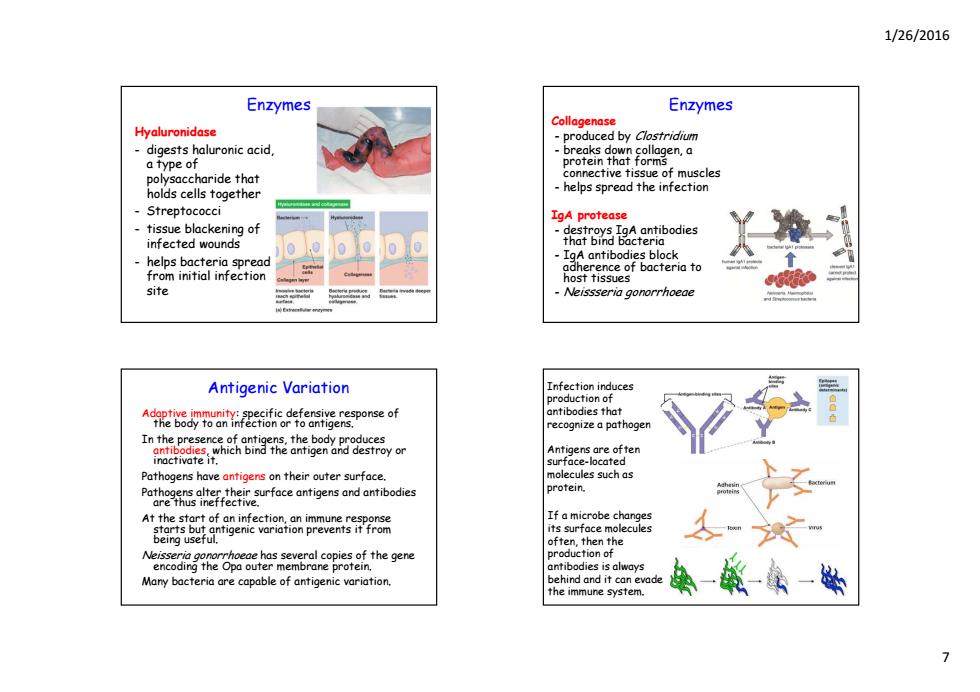正在加载图片...

1/26/2016 Enzymes Enzymes Collagenase Hyaluronidase -produced by Clostridium digests haluronic acid, a type of prorein mar fonmgen polysaccharide that connective tissue of muscles holds cells together -helps spread the infection -Streptococci IgA protease -tissue blackening of infected wounds 0 helps bacteria spread IgA antibodies block from initial infection bacteria to site Neissseria gonorrhoeae Antigenic Variation Infection induces production of me n eeonof antibodies that recognize a pathogen inactivatet Antigens are often surface-located Pathogens have antigens on their outer surface. molecules such as antigens and antibodies protein. 器 If a microbe changes its sur les often,then the eourmemrre re production of antibodies is always Many bacteria are capable of antigenic variation behind and it can evade the immune system. 1/26/2016 7 Enzymes Hyaluronidase - digests haluronic acid, a type of polysaccharide that holds cells together - Streptococci - tissue blackening of infected wounds - helps bacteria spread from initial infection site Enzymes Collagenase - produced by Clostridium - breaks down collagen, a protein that forms connective tissue of muscles - helps spread the infection IgA protease - destroys IgA antibodies that bind bacteria - IgA antibodies block adherence of bacteria to host tissues - Neissseria gonorrhoeae Antigenic Variation Adaptive immunity: specific defensive response of the body to an infection or to antigens. In the presence of antigens, the body produces antib di o es, hi h bi d th ti d d t which bind th e antigen and destroy or inactivate it. Pathogens have antigens on their outer surface. Pathogens alter their surface antigens and antibodies are thus ineffective. At the start of an infection, an immune response st t b t ti i i ti t it f tarts but antigenic variation prevents it from being useful. Neisseria gonorrhoeae has several copies of the gene encoding the Opa outer membrane protein. Many bacteria are capable of antigenic variation. Infection induces production of antibodies that recognize a pathogen Anti ens are often Antigens are often surface-located molecules such as protein. If a microbe changes its su f c m l cul s its surface molecules often, then the production of antibodies is always behind and it can evade the immune system